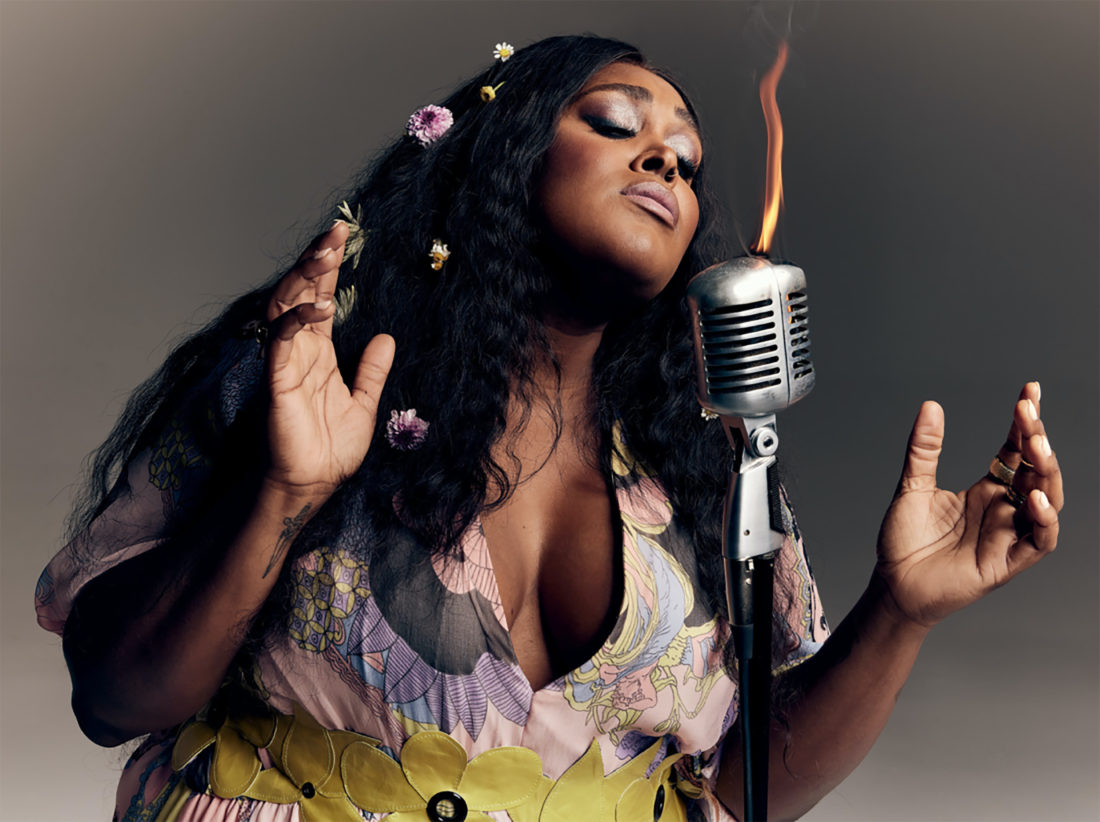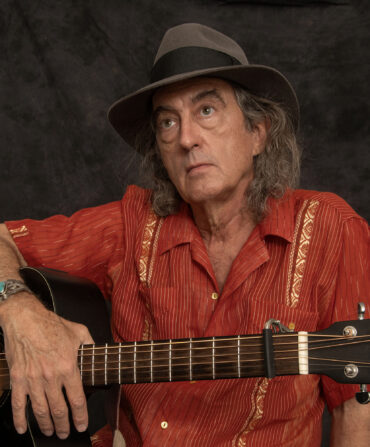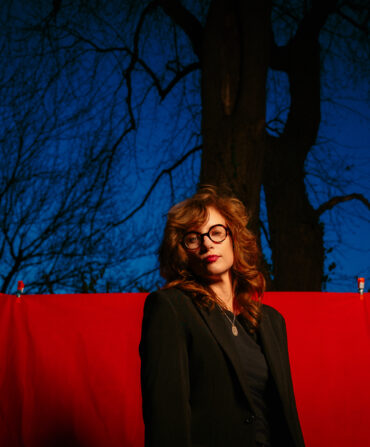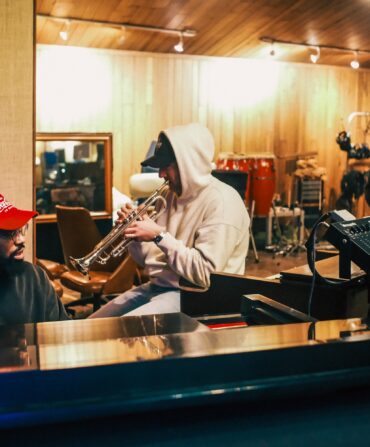It’s a balmy, blustery winter night in East Nashville, the kind of weather that makes locals jittery following the deadly tornado outbreak of March 2020. But inside the Basement East, rebuilt after those storms demolished it, the backstage dressing room is jammed as Brittney Spencer, resplendent in a floor-length leather jacket and white cowboy boots, basks in the glow of her first-ever headlining show in her adopted hometown. A who’s who of Black Nashville country artists, including Jimmie Allen, Blanco Brown, Reyna Roberts, and Tony Evans Jr., whoop it up as flashbulbs pop.
With respect to then music critic Jon Landau’s words when he discovered Bruce Springsteen, I have seen the future of country music, and its name is Brittney Spencer. Along with her effervescent personality and unshakable drive, she can straddle a range of styles and, with a voice as powerful as it is poignant, make just about any song her own. In a cutthroat industry that has been maddeningly slow in its attempts to become more inclusive, Spencer has also endeared herself to a huge swath of fellow artists, opening for Jason Isbell on a recent tour and playing at the Ryman as well as stealing the show from the likes of Keith Urban and Luke Combs at a flood relief benefit concert organized by Loretta Lynn. But it’s hardly been an easy journey for the Baltimore native, who dreamed of country music stardom after hearing the band then known as the Dixie Chicks as an early teen. She left Maryland for Nashville on her own in 2013, teaching herself how to play guitar, and busked on Lower Broadway while attending Middle Tennessee State University. At one point she was so broke she lived out of her car for a semester.
She began posting Twitter videos of her cover songs, and in 2020 she uploaded a Highwomen track, “Crowded Table,” which caught the eye of Highwomen members Amanda Shires and Maren Morris, who invited her to sing with them at a show. She self-released her single “Sober and Skinny,” a sly tale of a couple dreaming of a way to repair their relationship, and listening to it, it would be easy to imagine a sold-out crowd at Bridgestone Arena in a year or so, waving their phones in the air and singing along. Now, as she readies her yet-to-be-titled debut album and an opening gig with Reba McEntire, the stakes are high, the attention almost overwhelming. “It’s not easy being a Black woman,” she says, “in an industry that’s learning how to have Black women.”
It was amazing to see the diversity of the crowd at your Basement East show.
I have a motto, which is: Do you want to hang out with us? I didn’t ask Black people or gay people to come to my show. But the greatest gift in the world is to see so much of who I am and what I stand for without having to always talk about it. There are a lot of Black artists coming into Nashville, and we are so excited. If we can see through race, there’s a big sonic renaissance happening here. Because we’re bringing culture. We’re not just bringing complexion.
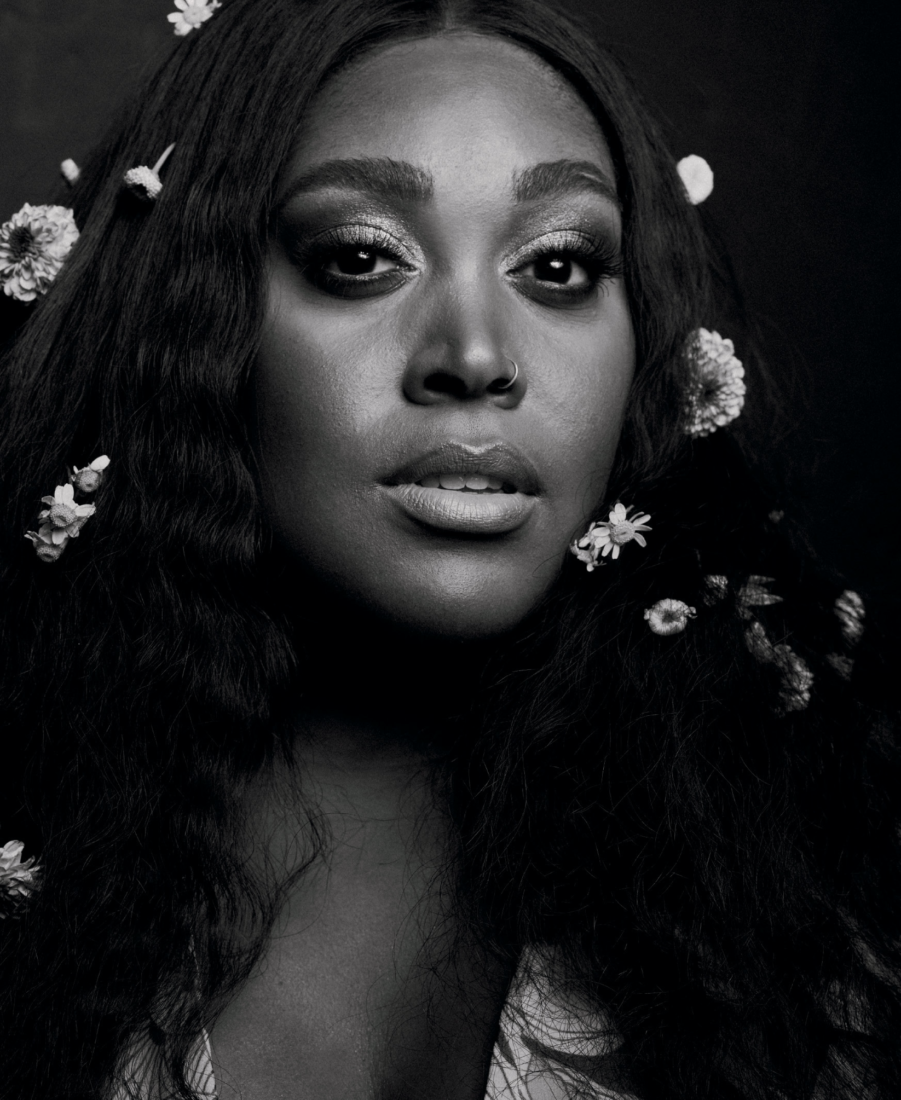
Before you played your song “Compassion,” you said, “This is a song Nashville hates.” Why?
I didn’t think anyone liked it. I submitted it for a popular songwriting competition in 2019, and they scored it like at a five out of ten. Because it’s not talking about just being nice to your neighbor. It’s saying: Hey, we must be empathetic and put ourselves in other people’s shoes to help inform us how to lead better lives. It talks about systemic changes. I wanted to find ways to humanize these really big ideas.
Did your family worry when you left for Nashville?
They were a little fearful for me, especially my dad. “Are you going to be okay, living down in the South? And particularly as a Black woman doing country music?” But I left and started volunteering at songwriting workshops at places like the Bluebird because I couldn’t afford to pay. Then I started busking in downtown Nashville, where I got to hear in real time what [people thought] when I would play the Pistol Annies, then Adele, Beyoncé, and Johnny Cash. I was too afraid to play at venues. I was too afraid to even dream about playing the Ryman. It was much more comfortable just to sing outside of it.
Your songs seem so effortless, but they can’t be easy to write.
No! They’re not easy at all, because I like catchy, but I don’t like cliché. I want to have songs that meet us in different areas of life. I want songs for having fun. I want wedding songs. I want songs for when there’s grief. I want songs for when you’re by yourself and it’s a long drive and you’re looking at the world and you don’t always like what you see. I want songs for when you feel hopeless and you have an issue that you know you can’t do a damn thing about.
Is there a song on the album that particularly resonates with you?
“Bigger Than the Song” is one I’m really proud of. It’s my love song to country radio. And I mention people in the lyrics whom I’ve loved: Reba. Dolly. I’m a huge Whitney Houston and Britney Spears fan. My sister’s name is Whitney, so I love that reference. Maren Morris is in there, and she means the world to me. Country radio isn’t that hospitable to women, but I want them to play the song. I tried to take a different approach and say to country radio, “Hey, I love you so much. Why don’t you love us?”
“When I Think about Love” has a vivid line about bending over backward to kiss someone. How did that come about?
I haven’t been in love in a long time. My brother and his partner were in New York City, and they were imitating the image of a soldier bending a nurse over to kiss her in Times Square at the end of World War II. My brother took a photo and posted it, and I thought it was so beautiful. Usually when you hear somebody talking about bending over backward, it’s kind of in a negative context. But just this idea of, I’m bending over backward because you got my back, you’re holding me, and I love you. I thought that was so beautiful.
What do you do to unwind?
I go to Knoxville. [Laughs.] It’s a quick getaway for me. A friend has a small guesthouse and I’ve made it my own, so we hang out and write songs. I like that there are still so many places where I can go and just sit in the woods. I know [Knoxville] looks huge on the map, but the part where I stay feels like a quaint little town. Sometimes my world feels so big in Nashville, I just need it to feel small again.
You’ve sung at the Grand Ole Opry, which recently booked Morgan Wallen, even after a video surfaced last year of him using the n word.
It’s put me in an awkward position. I love singing there. I hope to one day become a member. Why should I give up my dream because somebody else screws up? But at the same time, if I do sing [there], what does that say about me? I don’t want to be a person who aligned themselves with something that goes against my best interests as a Black woman. I’m in a constant state of tension.
Where do you see yourself in fifteen years?
Some days I’m just like, “God, how do I get to tomorrow?” Or “How do I get to tonight?” [Laughs.] Other days, I think about what it will be like to watch someone onstage who was directly impacted and influenced musically by something I did fifteen years ago. I do see moments for myself when I put out albums that made an impact. In fifteen years, country music will still be my story. I see country music as this inclusive space, and it reflects what I see in our country every single day, which is a little bit of everything.


